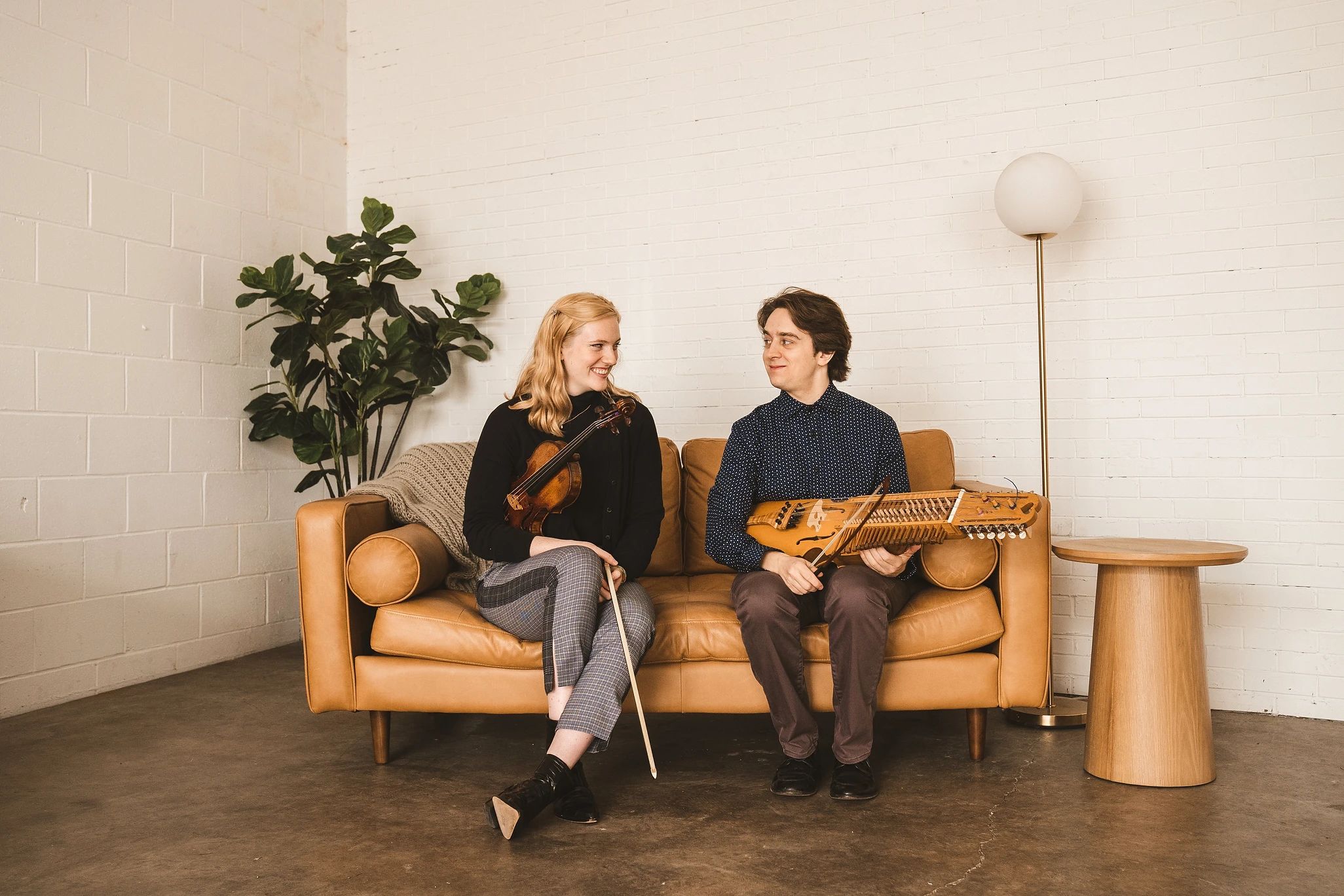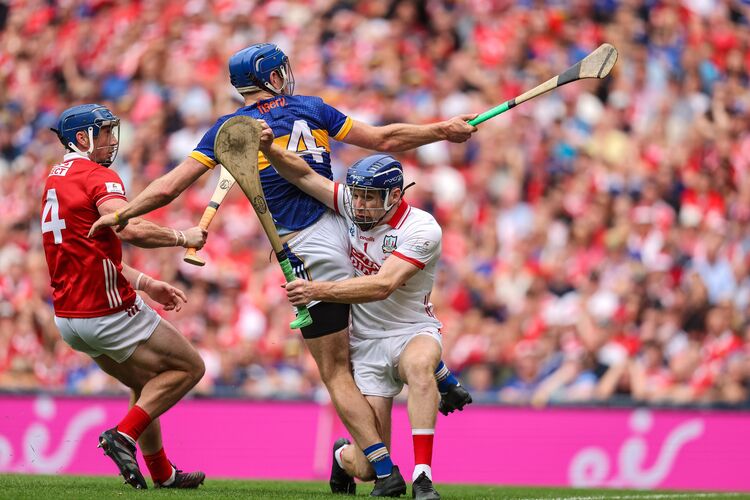Lots of great music out there these days which means I’ve got some great stuff to look forward to writing about and this week is no exception. In the media player I’ve got “Unmatched Pair,” Hannah O’Brien and Grant Flick’s follow up to their 2021 album “Windward.” O’Brien and Flick are top shelf, skilled musicians and here, they’ve given us an album of highly complex and technically proficient music that brings together a variety of genres in a most evocative way.
Readers of this column may not be familiar with the artists here. Based in Ann Arbor, Mich., Flick (https://www.grantflick.com/) is an outstanding performer. On this album, he features on fiddle, tenor guitar, and nyckelharpa (which, if you don’t already know, is a keyed fiddle from Sweden that’s as complex looking a stringed instrument as you’re likely to see). Flick is proficient on a number of other instruments as well, including mandolin, tenor guitar, tenor banjo and viola, which ground him in all sorts of genres, with his primary interests being new acoustic music, jazz manouche, jazz/swing, bluegrass and American old-time musics. He’s performed at places like the Grey Fox Bluegrass Festival, ROMP Fest, Telluride Bluegrass Festival and the Savannah Music Festival and has played alongside Frank Vignola, Mike Marshall, Julian Lage and Darol Anger.
O’Brien is an equally talented performer. A fiddle player from St. Louis who is now based in Boston, she grew up immersed in the Irish tradition (her father is the fiddle player Andrew O’Brien, who comes from the well-known musical family in Dublin), but she developed a love for classical music and has played in several high-level ensembles including the Boston Lyric Opera, Cabrillo Festival Orchestra, Des Moines Metro Opera, Cape Cod Chamber Orchestra, Lucerne Festival Academy Orchestra, Spoleto Festival Orchestra, and the New Bedford Symphony. She has also performed with the likes of Aoife O’Donovan, Time For Three, and appeared on the Grammy Nominated Album “Sila: The Breath of the World” by composer John Luther Adams.
Both are outstanding players and here the two have brought their different musical backgrounds together in a way that they explain “draws from their respective musical upbringings, weaving Irish, Classical and American folk idioms together to tell the story of people, places, experiences, and events.”
Much of the album consists of original tunes (there are 10 of these), all of which work and give the album a great sense of artful cohesion, but what I think really stands out are the performances and the arranging, both of which are of an exceptionally high standard and are the basis for some outstanding tracks.
The album starts off with “Dismal Nitch,” a brooding, mid-tempo track that has something of a contemporary Irish feel. Raucous fiddle playing over guitar playing that is alternately intricate & melodic and chordal & jangly sets a fairly dark tone that leaves the listener wondering what’s to come. I find “Cape Disappointment” sets a fairly similar tone. It’s is a lovely track that includes some rhythmic sleight of hand in the middle section that gives the track an interesting structure. “Beaver Island Ferry” is something of a contrast. A brighter type of tune, it includes well-articulated fiddle parts that dance around spritely melodies, percussive bowing and changes in meter. It’s a tune that will elicit positive feelings from even the most casual listener.
I find elements of that track are a bit of a companion to “Double Pass,” which uses a few similar techniques to set an “old time” tone. Here, O’Brien’s fiddle contrasts with Flick’s nyckelharpa (which sounds suspiciously like a mandolin), taking turns playing melodic passages. But Flick’s nyckelharpa playing, which alternates between scintillating melody playing and dynamic percussive bowing, is a perfect lead to a final blast between the two instruments that gives the track a keen edge. The duo mixes up their influences again on “Golden Boots,” which to my ears is very “classical” in outlook. On the one hand, the melody sounds like something out of the baroque (or early classical) period, with the use of the nyckelharpa in a way suggesting the sound of the harpsichord. But the occasional slide O’Brien uses to get into notes is a conceit I associate with an old-time approach. It’s a fabulous track.
“Andrew O’Brien’s Fiddle / John Kelly’s Concertina” is perhaps the album’s most overt reference to Irish traditional music. The two tunes reference O’Brien’s father and Dublin fiddle/concertina John Kelly, reflecting her musical heritage. The tunes, a slip jig and a reel, are gorgeously rendered with Flick providing understated accompaniment.
The music on “Unmatched Pair” is as nuanced as it is complex. O’Brien and Flick are superb musicians who share an artistic vision that balances their influences in a way that forges something new and interesting. This music will excite sophisticated listeners and will take many followers of traditional playing by surprise. Check it out! You can support the musicians by buying their album on Bandcamp (https://hannahobriengrantflick.bandcamp.com). They also have a tunebook for the album that’s available through their Bandcamp page. The album is also available to listen to on streaming services like Spotify – definitely worth checking out. To learn more, visit https://www.obrienflickmusic.com/.







